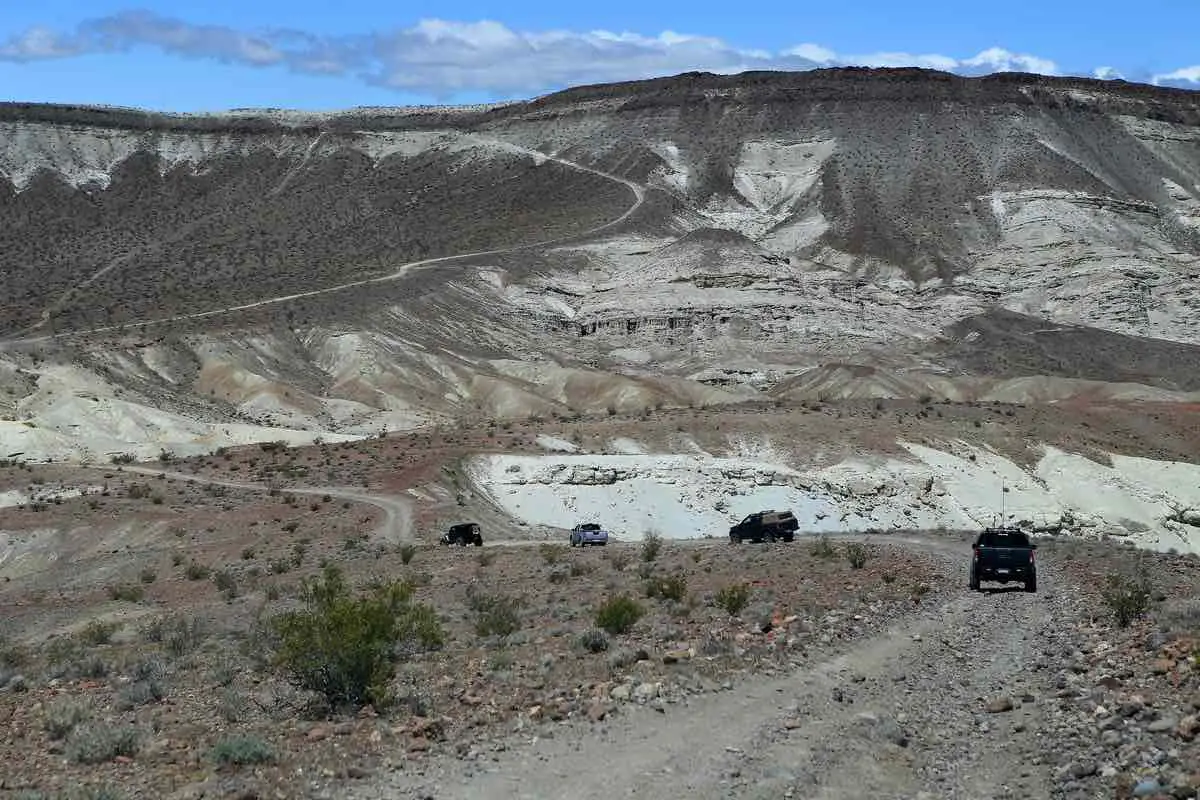Off-roading is an exhilarating experience that most avid motorists enjoy. Although off-roading can be a lot of fun, it requires skill and sound judgment to keep your vehicle in good health and to enjoy the ride without breaking down your truck’s transmission.
Off-roading can be bad for your truck’s transmission if you ride the clutch, perform improper shifting, and overload the vehicle. Ignoring signs of transmission damage can also lead to transmission failure. If you are unsure on how to properly off-road, there are classes you can take.
In this article, I will discuss the leading causes of transmission failure and how you can avoid being stranded in the middle of nowhere. The transmission is the most complex part of your vehicle, and it pays to know when you need to get it checked by a professional.

Transmission Damage Due to Excessive Clutch Use
The most common issue for manual transmission users is the overheating of the transmission. Imagine yourself riding through the backcountry, which includes rough terrain, rocks, and boulders. You use the clutch to balance power and control to maintain constant momentum. However, the excessive use of the clutch can overheat the transmission of the truck.
When you use the clutch for anything apart from shifting gears, you will eventually wear out your clutch plate, leading to a hefty bill. There are sure signs you can look out for; for instance, if you see smoke coming out of the engine that smells like burning rubber, you’re riding the clutch, and the pressure plate is wearing out and getting damaged.
This article has good information on the bad habits that will destroy your clutch.
As a rule of thumb, you should only engage the clutch when you need to shift gears. If you need to keep your vehicle stable on an incline, use the brakes.
Transmission Damage Due to Improper Shifting
Another reason your transmission can take a hit and consequently burn a hold in your wallet is the improper shifting of gears. Transmission can incur damage when you shift at the wrong time, either too early or too late. It can also take a toll if you release the clutch too slowly or quickly.
Although perfect shifting comes with experience, there are ways to gauge the right shift time by how your vehicle reacts to the operation. For instance, if you release the clutch too quickly, your car will jerk and put extra strain on the engine and the transmission. The video below will give you a good idea of how to work your clutch correctly:
Transmission Damage Due to Fluid Leakage
Whether you have an automatic or a manual vehicle, the transmission fluid is responsible for keeping it from heating up. If you have a leak that results in a significant loss of transmission fluid, your transmission will heat up and consequently damage the internal parts.
You must inspect your vehicle thoroughly before and after a ride to ensure there are no leaks. At this point, it is worth mentioning that a leak does not necessarily mean a dripping of liquid from your vehicle’s components. Sometimes a leak can be very minor and may not result in a drip and, therefore, may not reflect on the dip-stick.
To spot a minor leak that can harm your vehicle’s health, wash your truck and then look for areas on your transmission with a layer of oil and dirt plastered along the seals. If you spot any, rush to a professional and get it fixed immediately.
Transmission Damage Due to Worn-Out Parts
Let’s face it; it’s hard for most of us to change the habits we’ve built over the years. If you have developed bad driving habits over the long haul, it will affect your vehicle negatively. This includes worn-out parts in your transmission, engine, and suspension.
Let’s take the example of the driver who constantly rides his clutch and doesn’t shift properly. Doing this puts strain on the transmission and will cause damage to the clutch plate and gear teeth. Eventually, he will have to take his truck to the shop and pay the price for his ignorance.
Similarly, your truck will incur excessive wear and tear when driving over obstacles, which wouldn’t be a cause of worry on a paved road. The damage is not limited to your transmission but also includes the engine and suspension of the vehicle. Performing regular maintenance on your truck is recommended and will save you from a hefty bill.
Transmission Damage Due to Overloading
Your vehicle is designed to haul a certain amount of weight; if you overload your truck while off-roading, you can damage the engine by overheating it. When your truck has more weight than it can handle, all the moving parts of your vehicle have to work harder to pull it. Therefore, always consult the manufacturer if you’re not sure of the weight capacity of your truck.
You can overload your vehicle either by putting excessive cargo on board or by bringing along more friends than the seats in your truck allows. The phrase, the more the merrier, doesn’t apply here.
Transmission Damage Due to a Clogged Filter
Since your transmission has moving metal parts, these parts will deteriorate over time, and metal shavings will be mixed with the transmission fluid. That being said, there are filters present in your transmission that are responsible for cleaning the fluid.
If these filters get clogged with metal shavings, the transmission fluid wouldn’t be able to move freely between parts and will result in an overheated transmission. It is imperative to get your vehicle inspected by a professional before things turn for the worst.

Conclusion
Off-roading is a great activity to get in touch with nature and test your new truck. If you go easy on your machine and treat it with respect, it will go a long way and continue to help you finish many trails.
Taking good care of your engine is a given for an experienced off-roader, but if you are relatively new to off-roading, this guide will provide you with all the information you need to treat your truck the right way out in the woods.
Sources
- Power Automotive – Santa Clarita: Transmission Service Explained
- A Man And His Gear: A quick look into if Off-Roading is bad for your Truck
- Off Road Manual: Is Off-Roading Bad for Your Truck?
- AAMCO: Common Problems Caused by Going Off Road and 4-Wheeling
- AAMCO: The Top 4 Reasons for Transmission Failure
- RideTime: What’s That Rattle? The Most Common Car Problems You’ll Face After Off-Roading
- YouTube: Ronny Dahl: Manual vs Automatic Off-road
- Ridgeback Service Bodies AU: Is off-roading bad for your truck?
- CarToq: Bad Habits That Will Destroy Your Car’s Clutch
